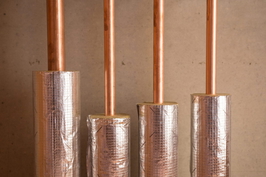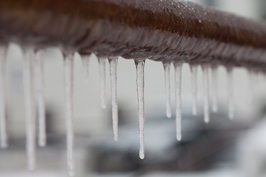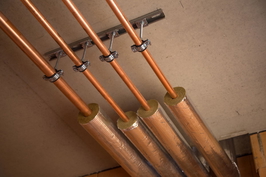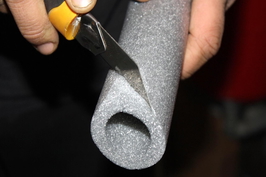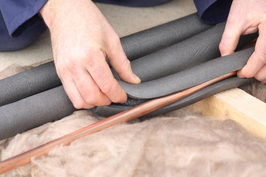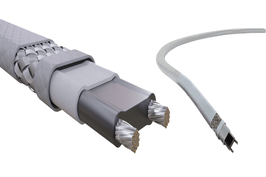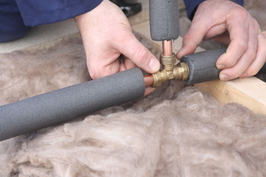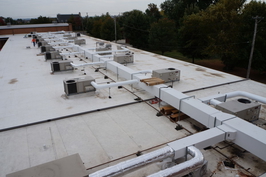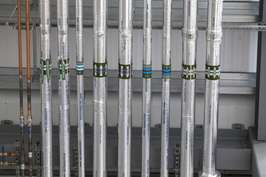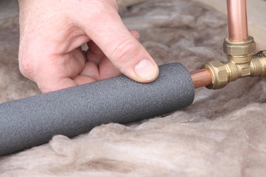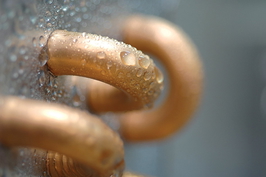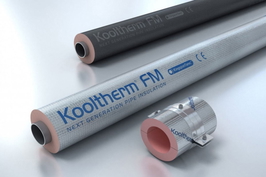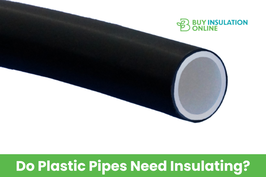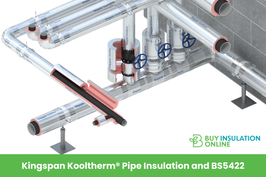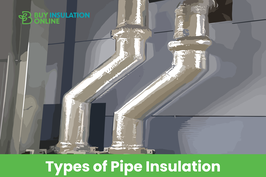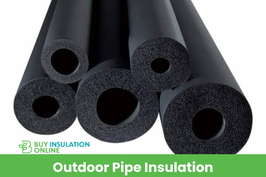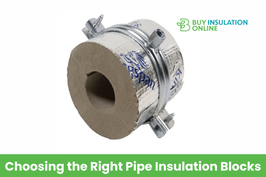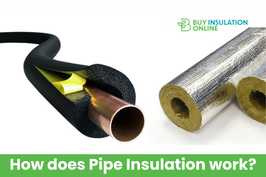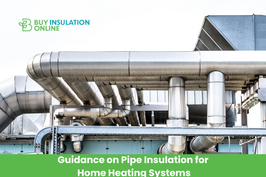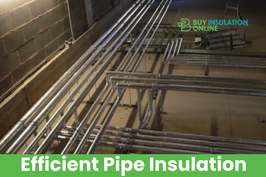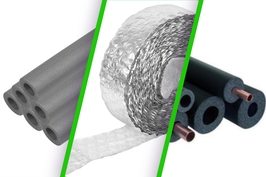Similar Categories
Phenolic Pipe Insulation: A Guide to Choosing and Installing the Best Product for Your Project
If you are looking for a high-performance insulation material for your pipes, you might want to consider phenolic pipe insulation. Phenolic pipe insulation is made from phenolic foam, which is a rigid cellular foam that has excellent thermal and fire-resistant properties. Phenolic pipe insulation is suitable for a wide range of applications, such as heating, ventilation, air conditioning, refrigeration, plumbing, and industrial processes.
In this article, we will explain what phenolic pipe insulation is, how it works, what are its benefits, and how to choose and install the best product for your project.
What is Phenolic Pipe Insulation?
Phenolic pipe insulation is a type of pipe insulation that consists of phenolic foam sections that are pre-formed to fit around pipes of various diameters and lengths. Phenolic foam is a synthetic material that is created by reacting phenol and formaldehyde in the presence of a catalyst. The resulting foam has a closed-cell structure that prevents heat transfer and moisture absorption. Phenolic foam is also resistant to fire, smoke, and water vapour, making it ideal for pipe insulation.
Phenolic pipe insulation can be classified into two main types: aluminium-faced and plain-faced. Aluminium-faced phenolic pipe insulation has a layer of aluminium foil on the outer surface, which provides additional protection against moisture, corrosion, and mechanical damage. Plain-faced phenolic pipe insulation does not have an aluminium layer, but it can be covered with a protective jacket or cladding, such as PVC, metal, or glass-reinforced plastic.
How Does Phenolic Pipe Insulation Work?
![Phenolic Pipe Insulation]() Phenolic pipe insulation works by reducing the heat loss or gain from the pipes, thus improving the energy efficiency and performance of the system. Phenolic pipe insulation also prevents condensation, frost, and corrosion on the pipes, which can cause damage and deterioration over time. Phenolic pipe insulation also helps to reduce noise and vibration from the pipes, which can improve the comfort and safety of the occupants.
Phenolic pipe insulation works by reducing the heat loss or gain from the pipes, thus improving the energy efficiency and performance of the system. Phenolic pipe insulation also prevents condensation, frost, and corrosion on the pipes, which can cause damage and deterioration over time. Phenolic pipe insulation also helps to reduce noise and vibration from the pipes, which can improve the comfort and safety of the occupants.
The thermal performance of phenolic pipe insulation depends on several factors, such as the thickness, density, and thermal conductivity of the foam, the temperature difference between the pipe and the ambient air, and the presence of any gaps or joints in the insulation. The thermal conductivity of phenolic foam is typically between 0.018 and 0.025 W/mK, which is lower than most other insulation materials, such as mineral wool, fibreglass, or polyurethane. This means that phenolic pipe insulation can achieve the same level of insulation with a thinner layer of material, which can save space and cost.
What are the Benefits of Phenolic Pipe Insulation?
Phenolic pipe insulation offers many benefits for various applications, such as:
- Energy efficiency: Phenolic pipe insulation can reduce the heat loss or gain from the pipes by up to 90%, which can lower the energy consumption and cost of the system. Phenolic pipe insulation can also help to maintain the optimal temperature and flow rate of the fluid in the pipes, which can improve the efficiency and performance of the system.
- Fire safety: Phenolic pipe insulation has a high fire rating, which means that it can withstand high temperatures and flames without igniting, melting, or dripping. Phenolic pipe insulation also has a low smoke emission and toxicity, which can reduce the risk of fire spread and harm to the occupants. Phenolic pipe insulation can also act as a fire barrier, which can prevent the fire from reaching the pipes and causing further damage.
- Moisture resistance: Phenolic pipe insulation has a low water vapor permeability, which means that it can prevent moisture from penetrating into the foam and affecting its thermal performance. Phenolic pipe insulation also has a low water absorption, which means that it can resist water damage and mold growth. Phenolic pipe insulation can also prevent condensation, frost, and corrosion on the pipes, which can extend the lifespan and reliability of the system.
- Durability: Phenolic pipe insulation has a high mechanical strength, which means that it can resist compression, impact, and abrasion. Phenolic pipe insulation also has a high dimensional stability, which means that it can retain its shape and size under varying temperatures and pressures. Phenolic pipe insulation can also resist chemical and biological attacks, such as acids, alkalis, oils, and microorganisms.
- Acoustic performance: Phenolic pipe insulation can reduce the noise and vibration from the pipes, which can improve the acoustic comfort and quality of the environment. Phenolic pipe insulation can also act as a sound barrier, which can prevent the noise from the pipes from transmitting to other areas.
How to Choose and Install Phenolic Pipe Insulation?
To choose and install the best phenolic pipe insulation for your project, you need to consider the following factors:
- The size and shape of the pipes: You need to measure the diameter and length of the pipes that you want to insulate and choose the phenolic pipe insulation sections that match the size and shape of the pipes. You can also use phenolic foam blocks or pipe supports to insulate the bends, elbows, tees, and valves in the pipe system.
- The temperature and pressure of the fluid in the pipes: You need to check the temperature and pressure of the fluid that flows through the pipes and choose the phenolic pipe insulation that can withstand the temperature and pressure range. You also need to check the thermal expansion and contraction of the pipes and allow for some clearance and flexibility in the insulation.
- The ambient conditions and requirements: You need to check the ambient temperature, humidity, and air movement around the pipes, and choose the phenolic pipe insulation that can resist the environmental factors. You also need to check the fire, moisture, and acoustic requirements of the project, and choose the phenolic pipe insulation that can meet the standards and regulations.
- The installation method and tools: You need to follow the manufacturer’s instructions and guidelines for installing the phenolic pipe insulation. You also need to use the appropriate tools and materials, such as a knife, a tape measure, a marker, a tape, a sealant, and a protective jacket or cladding. You need to ensure that the phenolic pipe insulation sections are fitted snugly and securely around the pipes and that there are no gaps or joints in the insulation. You also need to seal and cover the phenolic pipe insulation with a protective layer, such as aluminium foil, PVC, metal, or glass-reinforced plastic.
What are the Best Products for Phenolic Pipe Insulation?
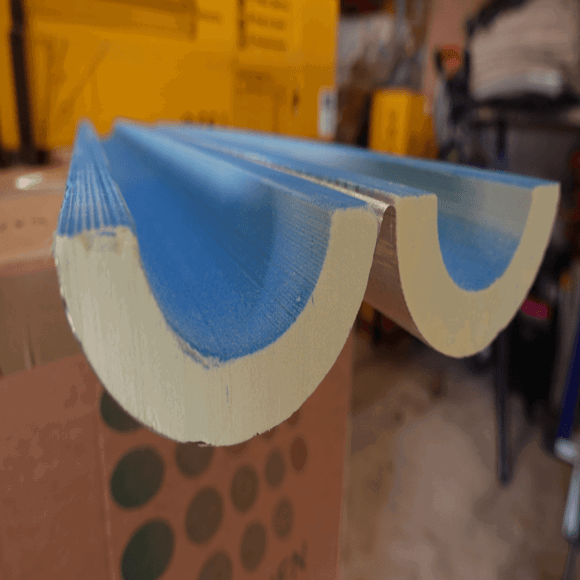 If you are looking for the best products for phenolic pipe insulation, you can find them at Buy Insulation Online, the UK’s leading online supplier of insulation products. Buy Insulation Online offers a wide range of phenolic pipe insulation products, such as:
If you are looking for the best products for phenolic pipe insulation, you can find them at Buy Insulation Online, the UK’s leading online supplier of insulation products. Buy Insulation Online offers a wide range of phenolic pipe insulation products, such as:
- Kingspan Kooltherm Aluminium-Faced Class O Phenolic Pipe Insulation: This is a premium quality phenolic pipe insulation product that has an aluminium foil facing on the outer surface, which provides extra protection and performance. This product has a low thermal conductivity of 0.021 W/mK, a high fire rating of Class O, and a low water vapour permeability of 2.8 ng/Pa.s.m. This product is available in various sizes and thicknesses, and it is suitable for pipes with a diameter of 15 mm to 219 mm and a temperature range of -180°C to +120°C.
- Phenolic Foam Pipe Insulation by Supaphen: This is a high-quality phenolic pipe insulation product that has a plain-faced surface, which can be covered with a protective jacket or cladding. This product has a low thermal conductivity of 0.023 W/mK, a high fire rating of Class O, and a low water vapour permeability of 3.5 ng/Pa.s.m. This product is available in various sizes and thicknesses, and it is suitable for pipes with a diameter of 15 mm to 114 mm and a temperature range of -180°C to +120°C.
- Phenolic Foam Blocks Pipe Supports with Clamps: This is a high-quality phenolic pipe insulation product that consists of phenolic foam blocks that are pre-cut and shaped to fit around the bends, elbows, tees, and valves in the pipe system. This product also comes with metal clamps that can secure the phenolic foam blocks to the pipes. This product has a low thermal conductivity of 0.023 W/mK, a high fire rating of Class O, and a low water vapour permeability of 3.5 ng/Pa.s.m. This product is available in various sizes and shapes, and it is suitable for pipes with a diameter of 15 mm to 114 mm and a temperature range of -180°C to +120°C.
Recommended Applications and Thermal Benefits
Phenolic pipe insulation, such as Kingspan Kooltherm, finds its niche across various applications including hot and cold water pipework, HVAC systems, refrigeration lines, and industrial process pipework. Its proficiency lies in offering thermal efficiency and protection against condensation. This insulation serves as an optimal solution for maintaining stable temperatures within pipework, contributing significantly to energy efficiency by minimizing heat loss and reducing heat transfer.
Range of Options and Fire Safety Properties
Kingspan Kooltherm phenolic pipe insulation offers a diverse selection of thicknesses to accommodate different pipe sizes and insulation needs. Common thickness options span from 15mm to 50mm, with customizable thicknesses available for specific project requirements. Moreover, its exceptional fire and smoke performance makes it a preferred choice in applications prioritizing fire resistance. The phenolic foam's ability to withstand high temperatures and inhibit flame spread during fire incidents ensures enhanced safety measures.
Conclusion
Phenolic pipe insulation is a great choice for insulating your pipes, as it can provide many benefits, such as energy efficiency, fire safety, moisture resistance, durability, and acoustic performance. Phenolic pipe insulation can also save you space and cost, as it can achieve the same level of insulation with a thinner layer of material.
To choose and install the best phenolic pipe insulation for your project, you need to consider the size and shape of the pipes,
Frequently Asked Questions
Q: What is phenolic pipe insulation?
A: Phenolic pipe insulation is a type of thermal insulation specifically designed for use in pipe systems. It is made from phenolic foam, a rigid insulation material with excellent thermal performance and fire resistance.
Q: What are the benefits of using kingspan kooltherm phenolic pipe insulation?
A: Kingspan Kooltherm phenolic pipe insulation offers superior thermal performance, fire resistance, and moisture resistance. It is also lightweight, easy to install, and provides long-term energy savings.
Q: How does kooltherm phenolic pipe insulation compare to other types of pipe insulation?
A: Kooltherm phenolic pipe insulation has a lower thermal conductivity compared to traditional insulation materials, resulting in better energy efficiency and thinner insulation thicknesses. It also has excellent fire performance and can withstand high operating temperatures.
Q: What are the key features of kingspan kooltherm phenolic foam pipe insulation?
A: Kingspan Kooltherm phenolic foam pipe insulation features a foil vapor barrier jacket, excellent fire and smoke performance, and is suitable for a wide range of pipe sizes and thicknesses. It provides an effective insulation solution for building services and HVAC applications.
Q: How is kooltherm phenolic foam pipe insulation installed?
A: Kooltherm phenolic foam pipe insulation is typically installed using foil tape to seal the joints and seams. The insulation is cut to fit around the pipework and secured in place using appropriate fixings. The foil vapour barrier ensures a secure and effective insulation system.
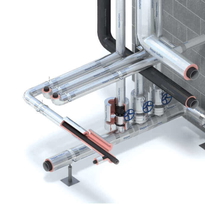
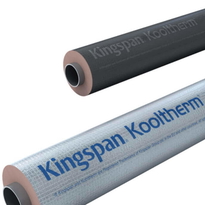
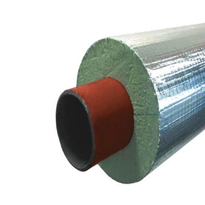
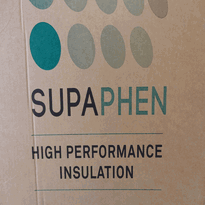
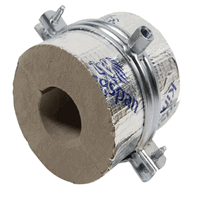
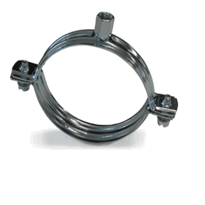
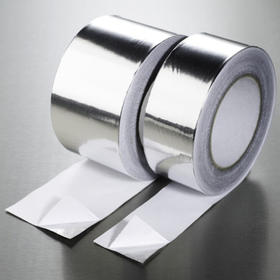
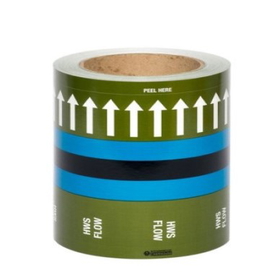
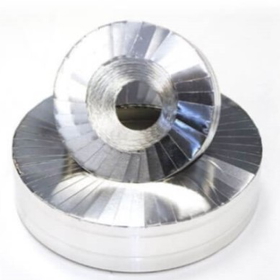
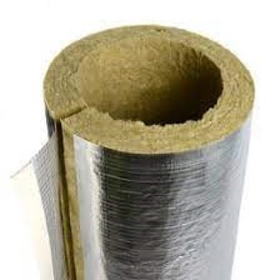
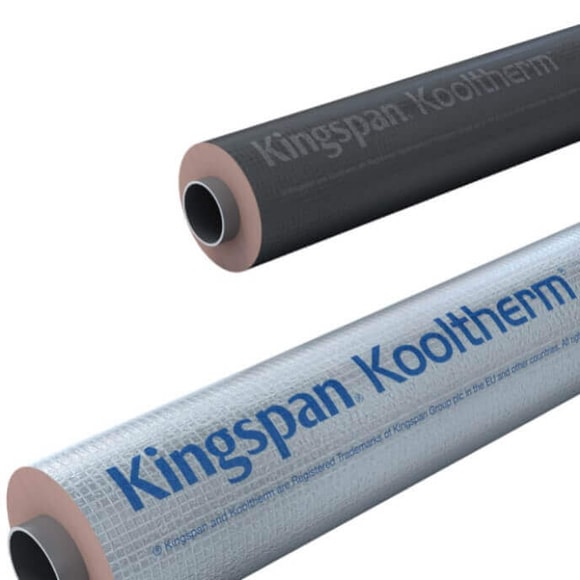 Phenolic pipe insulation works by reducing the heat loss or gain from the pipes, thus improving the energy efficiency and performance of the system. Phenolic pipe insulation also prevents condensation, frost, and corrosion on the pipes, which can cause damage and deterioration over time. Phenolic pipe insulation also helps to reduce noise and vibration from the pipes, which can improve the comfort and safety of the occupants.
Phenolic pipe insulation works by reducing the heat loss or gain from the pipes, thus improving the energy efficiency and performance of the system. Phenolic pipe insulation also prevents condensation, frost, and corrosion on the pipes, which can cause damage and deterioration over time. Phenolic pipe insulation also helps to reduce noise and vibration from the pipes, which can improve the comfort and safety of the occupants.